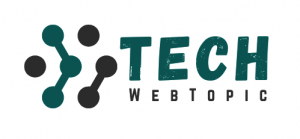Why Metadata Matters
Every library has always needed a way to keep order. In the past it was rows of catalog cards and librarians who knew exactly where to point. In the digital world that job belongs to metadata. Strip away the fancy name and it just means details about the book itself. Without it a file is like a paperback with the cover torn off and no title page. It sits there but no one knows what it is.
Metadata keeps billions of digital texts from slipping into chaos. It notes the author the title the subject and even the file type that makes it possible to open on different devices. Most people who are interested in free reading online eventually find Zlibrary and realize how much difference careful categorization makes when the shelves are invisible.
The Many Layers of Metadata
Metadata runs deeper than a title or an author line. It can log the year of publication the edition the ISBN and even language variants. That layering lets a digital library handle overwhelming amounts of material while still making sense to the person searching. It is like sheet music that keeps the entire orchestra in rhythm.
Sometimes metadata tells the story of a book itself. A scanned copy of “Pride and Prejudice” might carry the date of its first printing while a new ebook edition lists the digital release. Both deserve a place but they serve different purposes. Without those tags one could swallow the other in a sea of duplicates.
Here are a few ways metadata shapes the life of a digital collection:
- Search and Discovery
Every search box runs on metadata. Type in “The Great Gatsby” and the system is not scanning every page of text. It is matching the labels stored in the database. Strong metadata even covers alternate spellings translations and keywords. When those details are sloppy a book can vanish from view no matter how often it is read in real life.
- Preservation and Access
Saving a file is not the same as preserving it. Metadata records the file format encoding and usage rights. That gives curators the tools to update collections for new devices without breaking rules or losing access. Without that map many books could sit locked away unreadable even though they are technically “there.”
- Personalization and Context
Tags like “historical fiction” or “coming of age” connect books across eras and cultures. Metadata builds these links and helps shape reading journeys that feel relevant. It is not about predicting personal taste but about pointing to patterns and letting readers stitch them together.
These layers show that metadata is more than a dry list of details. It is the quiet scaffolding that makes discovery possible.
The Future of Metadata in Libraries
Digital collections keep expanding and metadata has to grow with them. Machines can now suggest tags by scanning full texts but human judgment still matters. A librarian can catch cultural nuance or tone in a way no algorithm can. The future probably belongs to a partnership between both approaches.
The challenge also lies in the variety of media. Libraries today do not just host books. They house audiobooks podcasts video lectures and even interactive courses. Each one needs its own type of metadata. A single tag works for a novel but a podcast might need episode numbers speaker names and time stamps.
Bringing It All Together
Metadata rarely gets attention yet it shapes every digital library. When it works shelves feel open and easy to wander. When it fails the whole place feels like a basement box filled with unlabeled paperbacks. By holding order behind the scenes metadata keeps knowledge alive and reachable. It turns a pile of files into something that still feels like a library even without the shelves.


